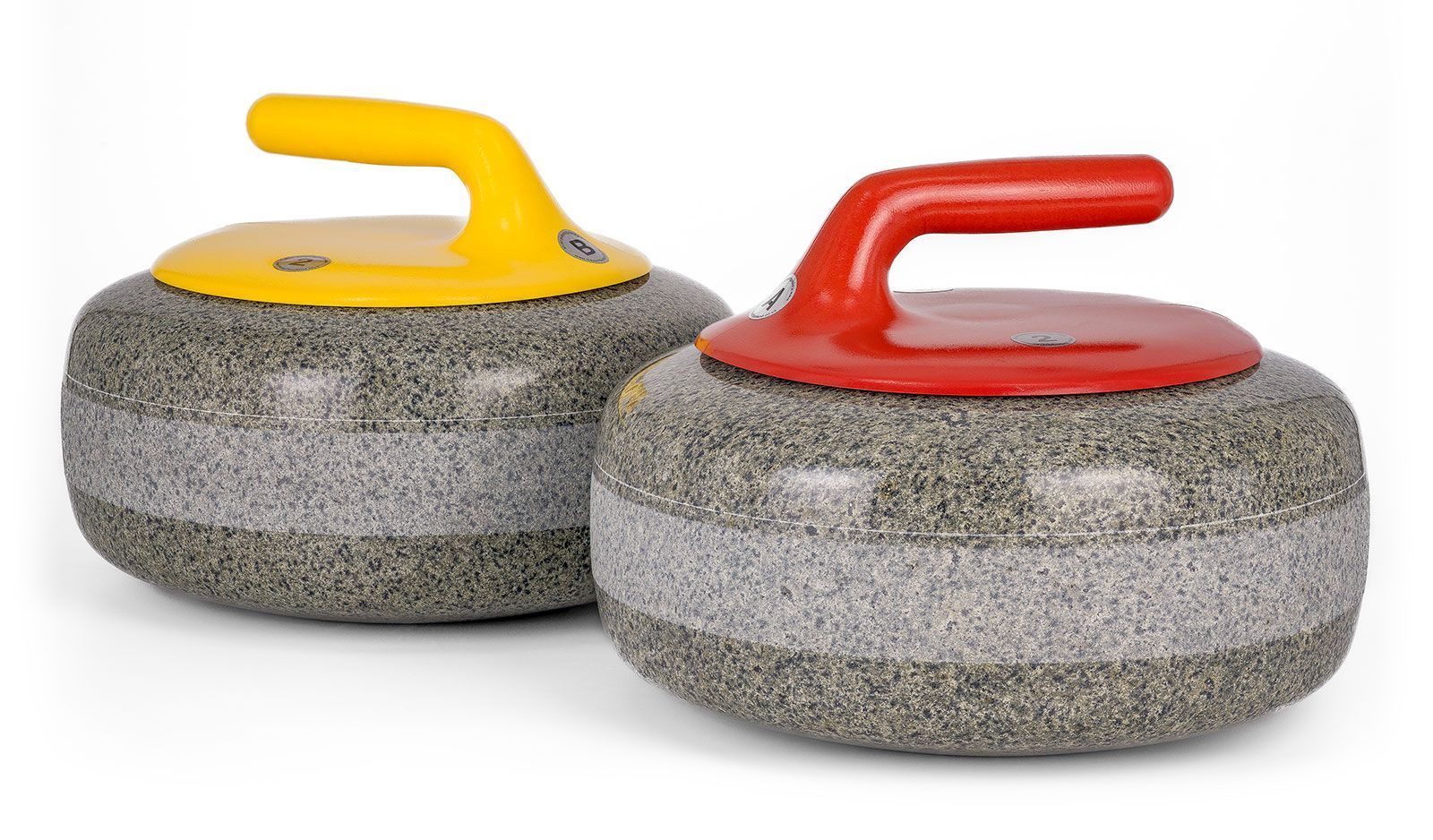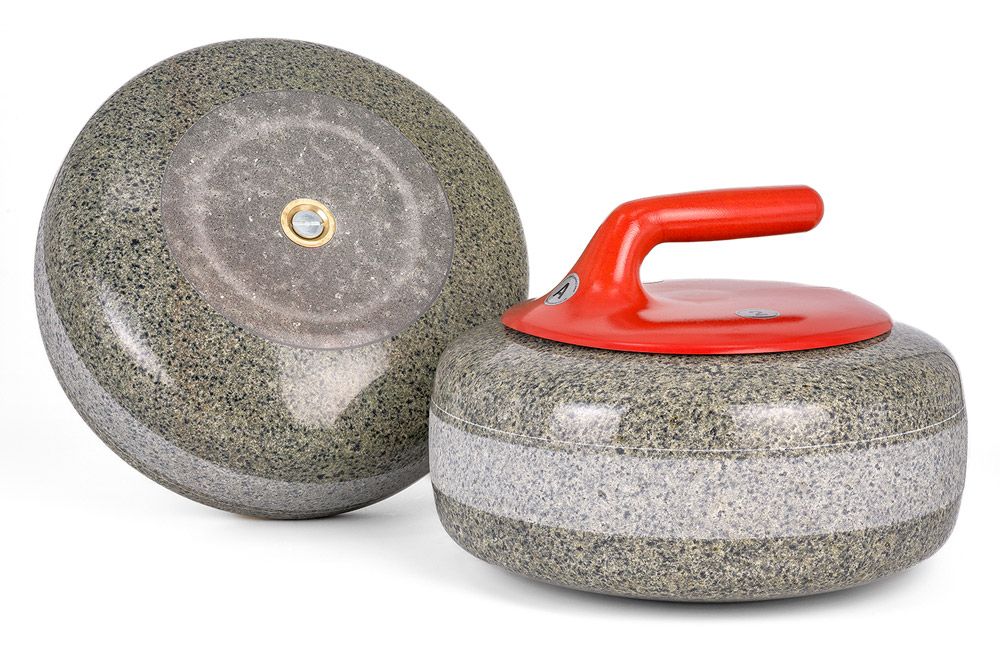
Kays Scotland Curling Stones
Kays Scotland curling stones are the standard by which all other curling stones are judged.
It is the resilience and molecular makeup of Ailsa Craig Common Green granite and the Blue Hone granite, as well as its proven track record, that creates the distinctive characteristics of our Ailsa Craig curling stones..
To create the best curling stones you require the finest materials and to this end we periodically harvest Ailsa CraigCommon Green Granite and Ailsa Craig Blue Hone Granite so as to satisfy our customers demands.
Our Kays Curling stones are made by matching the characteristics of these different granites and combining them enables us to produce world class competition curling stones.
Over the years our team of experienced craftspeople have researched the most suitable granites for the various parts of the curling stone.
This extensive research proved that Ailsa Craig Blue Hone granite is the most reliable and proven to be the most effective material for the stone’s running edge on today’s modern ice.
Ailsa Craig Common Green Granite is used for the body of the stone because its unique structure is more resistant to heat transfer, it copes better with condensation and does not splinter after contact with another stone in play.
To create the running edge, a Blue Hone insert is fitted to the Ailsa Craig Common Green stone body, a technique we have perfected and called "Ailserts". Our stones come with either a single or a double Ailsert on each side of the stone.
Throughout the manufacturing process each stone is subject to numerous quality checks to ensure they meet the highest quality standards. Each stone is unique, being hand crafted from 60 million years old natural granite. Occasionally a stone may fail as a result of unseen flaws in the granite - in those rare cases such a stone would be replaced under our stone guarantee. Remember - we have been producing world class stones in Scotland for over 170 years.
New Kays Curling Stones
Buying a set of Kays Curling stones for your rink is the right decision for numerous reasons...

Ailsa Craig Common Green Granite curling stones are the bespoke choice for your curling club or association.
Manufactured to the highest possible quality to provide years of reliable and consistent performance, all stones feature either one a single Ailsa Craig Blue Hone Ailsert, or double inserts,one on each side of the stone. Please email or call us to discuss first hand your requirements.
Our stones play so well and are so resilient that they were chosen to be used in the last 5 Olympic Winter Games and we hope in many more to come.
As a small company we are proud of this achievement and feel it is testament to the quality stones we produce.
WARNING
Stones with a running edge not made from Blue Hone granite will pit and will compromise the stones performance.
Ensure that when investing in new stones you benefit from our years of experience and unique access to the best of materials.
Refurbished Kays Curling Stones
Kays Curling can provide you with high quality refurbished curling stones.
Refurbished curling stones can be an excellent choice as they offer value for money at the same time as having had a full health check as to their performance.
Depending on your requirements we can discuss either refurbishment, upgrading or the supply of new stoness.
We will work with you to match your facility with the best, and most affordable, curling stones.
